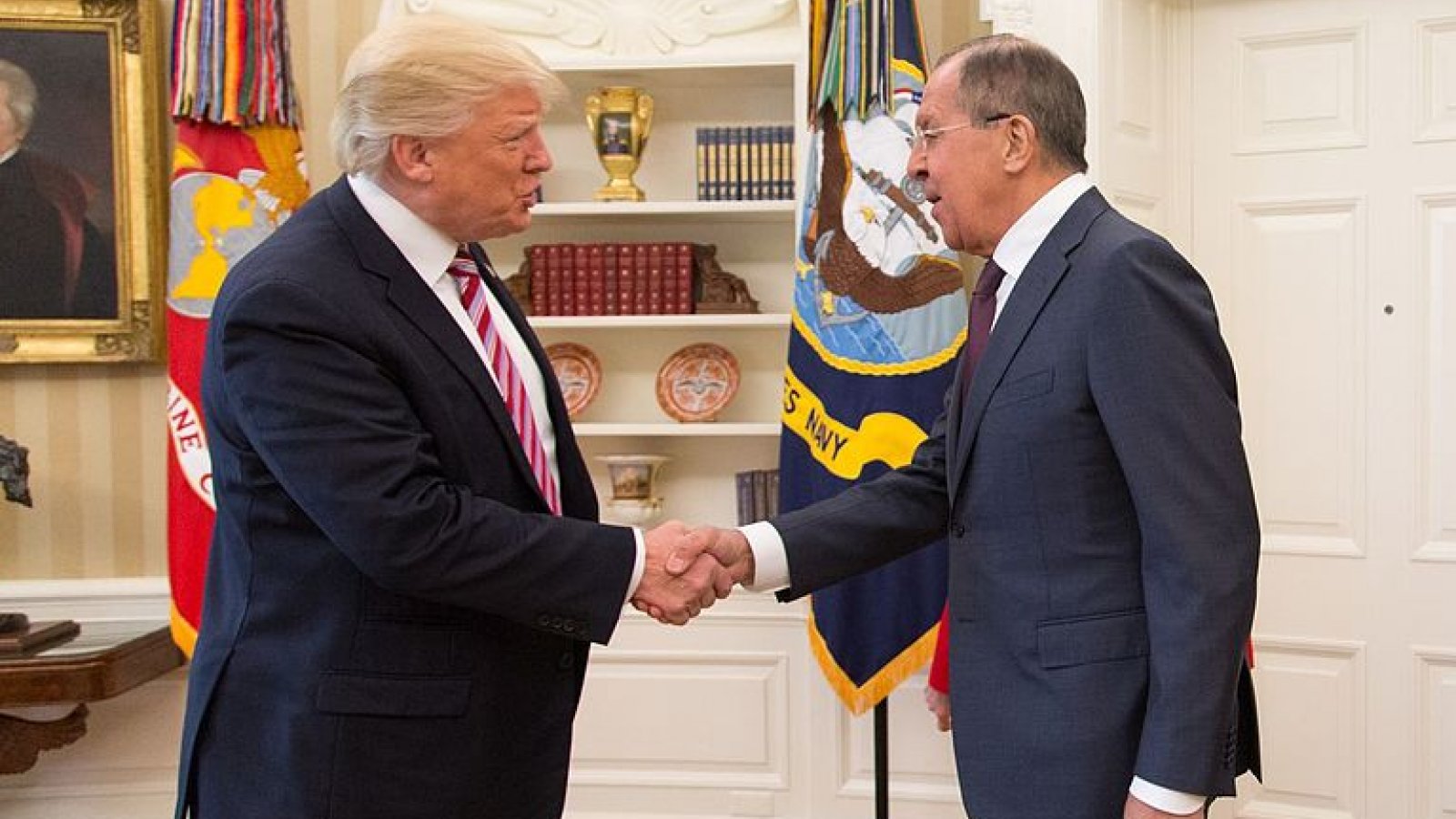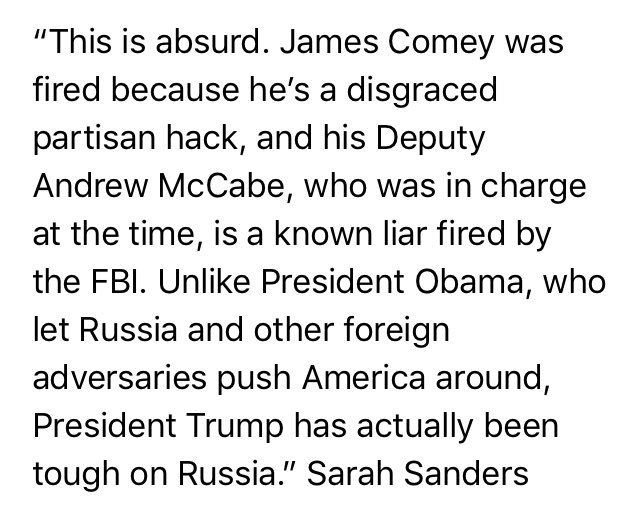
The New York Times reveals the FBI opened a counterintelligence investigation into President Trump in the days after he fired FBI Director James Comey because they were concerned he may be working for Russia and against the interests of the United States.
The inquiry carried explosive implications. Counterintelligence investigators had to consider whether the president’s own actions constituted a possible threat to national security. Agents also sought to determine whether Mr. Trump was knowingly working for Russia or had unwittingly fallen under Moscow’s influence.
(...)
Agents and senior F.B.I. officials had grown suspicious of Mr. Trump’s ties to Russia during the 2016 campaign but held off on opening an investigation into him, the people said, in part because they were uncertain how to proceed with an inquiry of such sensitivity and magnitude. But the president’s activities before and after Mr. Comey’s firing in May 2017, particularly two instances in which Mr. Trump tied the Comey dismissal to the Russia investigation, helped prompt the counterintelligence aspect of the inquiry ...
The special counsel, Robert S. Mueller III, took over the inquiry into Mr. Trump when he was appointed, days after F.B.I. officials opened it. That inquiry is part of Mr. Mueller’s broader examination of how Russian operatives interfered in the 2016 election and whether any Trump associates conspired with them. It is unclear whether Mr. Mueller is still pursuing the counterintelligence matter ...
The criminal and counterintelligence elements were coupled together into one investigation ... because if Mr. Trump had ousted the head of the F.B.I. to impede or even end the Russia investigation, that was both a possible crime and a national security concern. The F.B.I.’s counterintelligence division handles national security matters.
If the president had fired Mr. Comey to stop the Russia investigation, the action would have been a national security issue because it naturally would have hurt the bureau’s effort to learn how Moscow interfered in the 2016 election and whether any Americans were involved, according to James A. Baker, who served as F.B.I. general counsel until late 2017 ...
(...)
No evidence has emerged publicly that Mr. Trump was secretly in contact with or took direction from Russian government officials.
(...)
The F.B.I. conducts two types of inquiries, criminal and counterintelligence investigations. Unlike criminal investigations, which are typically aimed at solving a crime and can result in arrests and convictions, counterintelligence inquiries are generally fact-finding missions to understand what a foreign power is doing and to stop any anti-American activity, like thefts of United States government secrets or covert efforts to influence policy ...
(...)
“In the Russian Federation and in President Putin himself, you have an individual whose aim is to disrupt the Western alliance and whose aim is to make Western democracy more fractious in order to weaken our ability, America’s ability and the West’s ability to spread our democratic ideals,” Lisa Page, a former bureau lawyer, told House investigators in private testimony reviewed by The Times.
“That’s the goal, to make us less of a moral authority to spread democratic values,” she added. Parts of her testimony were first reported by The Epoch Times.
The Times says the FBI's concerns started during the 2016 campaign and continued into Trump's presidency, but they did not take opening an investigation into the president lightly.
As for a counterintelligence inquiry, they concluded that they would need strong evidence to take the sensitive step of investigating the president, and they were also concerned that the existence of such an inquiry could be leaked to the news media, undermining the entire investigation into Russia’s meddling in the election.
After Mr. Comey was fired on May 9, 2017, two more of Mr. Trump’s actions prompted them to quickly abandon those reservations.
The first was a letter Mr. Trump wanted to send to Mr. Comey about his firing, but never did, in which he mentioned the Russia investigation. In the letter, Mr. Trump thanked Mr. Comey for previously telling him he was not a subject of the F.B.I.’s Russia investigation.
Even after the deputy attorney general, Rod J. Rosenstein, wrote a more restrained draft of the letter and told Mr. Trump that he did not have to mention the Russia investigation ... Mr. Trump directed Mr. Rosenstein to mention the Russia investigation anyway.
... The president ultimately added a reference to the Russia investigation to the note he had delivered, thanking Mr. Comey for telling him three times that he was not under investigation.
(...)
The second event that troubled investigators was an NBC News interview two days after Mr. Comey’s firing in which Mr. Trump appeared to say he had dismissed Mr. Comey because of the Russia inquiry.
As F.B.I. officials debated whether to open the investigation, some of them pushed to move quickly before Mr. Trump appointed a director who might slow down or even end their investigation into Russia’s interference. Many involved in the case viewed Russia as the chief threat to American democratic values.
(...)
F.B.I. officials viewed their decision to move quickly as validated when a comment the president made to visiting Russian officials in the Oval Office shortly after he fired Mr. Comey was revealed days later.
“I just fired the head of the F.B.I. He was crazy, a real nut job,” Mr. Trump said, according to a document summarizing the meeting. “I faced great pressure because of Russia. That’s taken off.”
White House Press Secretary Sarah Sanders issued the following statement in response to the New York Times' report:
F.B.I. Opened Inquiry Into Whether Trump Was Secretly Working on Behalf of Russia (NYT)
